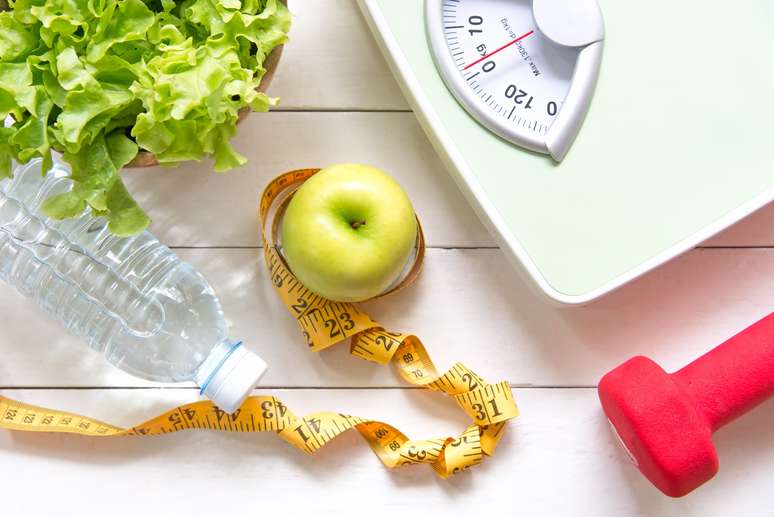You may have heard this recommendation before; But does it make a difference?
When looking for strategies to lose weight, it is common to find suggestions for lifestyle changes, such as reducing portions, reducing sugar and fat consumption, taking walks and drinking more water.
Increasing your fluid intake is perhaps the easiest recommendation to follow. But does it really help you lose weight? And if so, how much water should you drink to achieve this goal?
Benefits of good hydration
For starters, drinking a good amount of fluids every day, whether it’s plain water, tea, coffee, smoothies or juice (without sugar), helps keep your body healthy.
- Fluids play a role in several metabolic processes, such as the digestion of carbohydrates, fats, proteins and vitamins.
- Additionally, research shows that staying hydrated helps the body eliminate toxins (through sweat, urine and feces), reduces the risk of kidney stones and urinary tract infections.
- Not to mention that a good intake of water prevents dryness of the skin.
- Consuming enough water is still vital for maintaining energy levels, as one of the first signs of dehydration, even mild, is fatigue.
Fewer carbohydrates
Even mild dehydration can cause tiredness and irritation. In these cases, you may turn to refined carbohydrates and sugar to try to boost your energy level. The reason: They are digested quickly, raise blood sugar levels in about 15 minutes, and release serotonin, which improves mood.
However, excess glucose, that is, that which has been consumed but not used for energy, is stored in the liver, muscles and other cells for later use or is converted into fat. So, before you give in to the temptation to eat something sweet, try drinking water to see if your mood improves.
Greater satiety
When you take a sip of water (or any other liquid), your stomach expands, and specific neurons that detect the organ’s stretching tell your brain that you’re full. As a result, when we drink water before a meal, there is a possibility of reaching satiety sooner.
Research supports this idea, too: A small 2007 study found that middle-aged and older men consumed less food at a meal when they drank 500 ml of water 30 minutes before eating. Similarly, a 2009 study found that middle-aged and older participants who followed a low-calorie diet and drank 500 ml of water before each of three meals for 12 weeks lost about 2 pounds a day, more than people who they followed a low-calorie diet. caloric diet.
Active metabolism
Increasing your water intake will not radically speed up your metabolism. Research has shown that when we drink water, the heating process, if it is cooled, requires energy and therefore speeds up the metabolism a little. While this benefit may be present, it plays a very small role in the total number of calories burned in a day.
However, it is possible for a person to have a slightly lower metabolic rate if they are dehydrated.
How much water to drink to lose weight?
Know that there is no precise answer, as each person has a specific need for fluid intake. Some nutritionists recommend multiplying 35 ml by weight. So, if you weigh 80 kilos, for example, you will need to consume about 2.8 liters of fluids per day. Be careful though: this need can vary based on the temperature, food and age of the person. And those with kidney problems should consult their doctor to find out how much to consume.
The studies mentioned above showing a link between water intake before meals and food consumption during a meal involved 500 ml of water before meals. And a 2008 study of 173 “premenopausal, overweight” women following several popular weight-loss diets found that increasing water intake from less than a liter per day to more than a liter was associated with weight loss of 2.2 kg in a year.
If you are thinking of losing weight, the ideal is to make an appointment with a nutritionist or doctor to receive the guidance best suited to your profile and lifestyle. A consultancy can pay much more dividends in the long run because it provides education. Furthermore, drinking too much water at once can actually be harmful to your health.
Source: shape
Source: Terra
Ben Stock is a lifestyle journalist and author at Gossipify. He writes about topics such as health, wellness, travel, food and home decor. He provides practical advice and inspiration to improve well-being, keeps readers up to date with latest lifestyle news and trends, known for his engaging writing style, in-depth analysis and unique perspectives.






